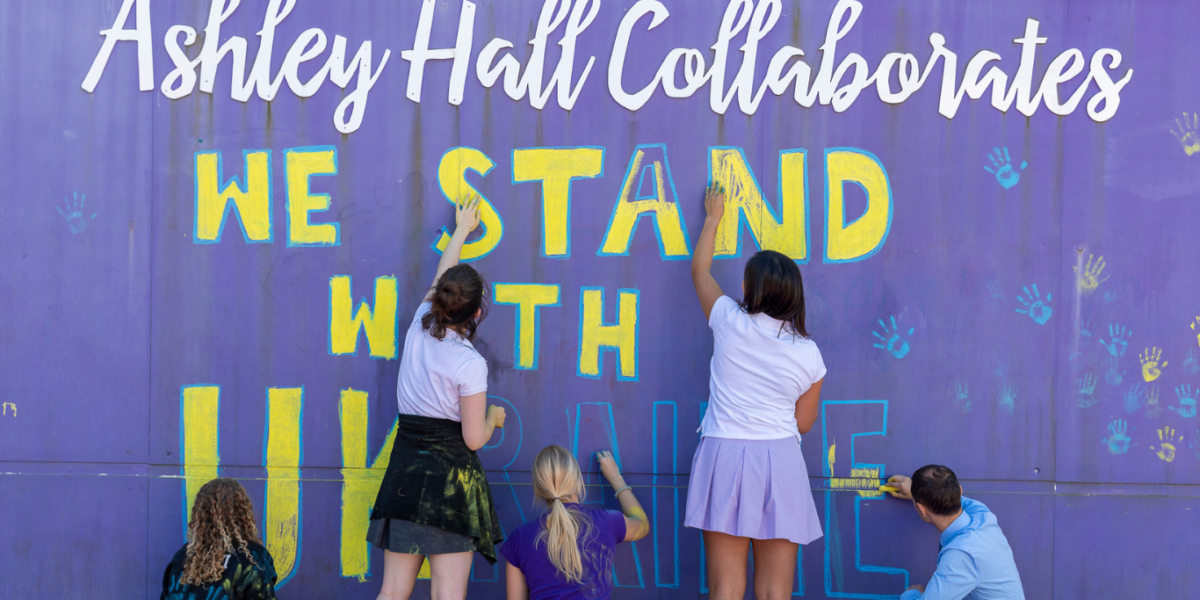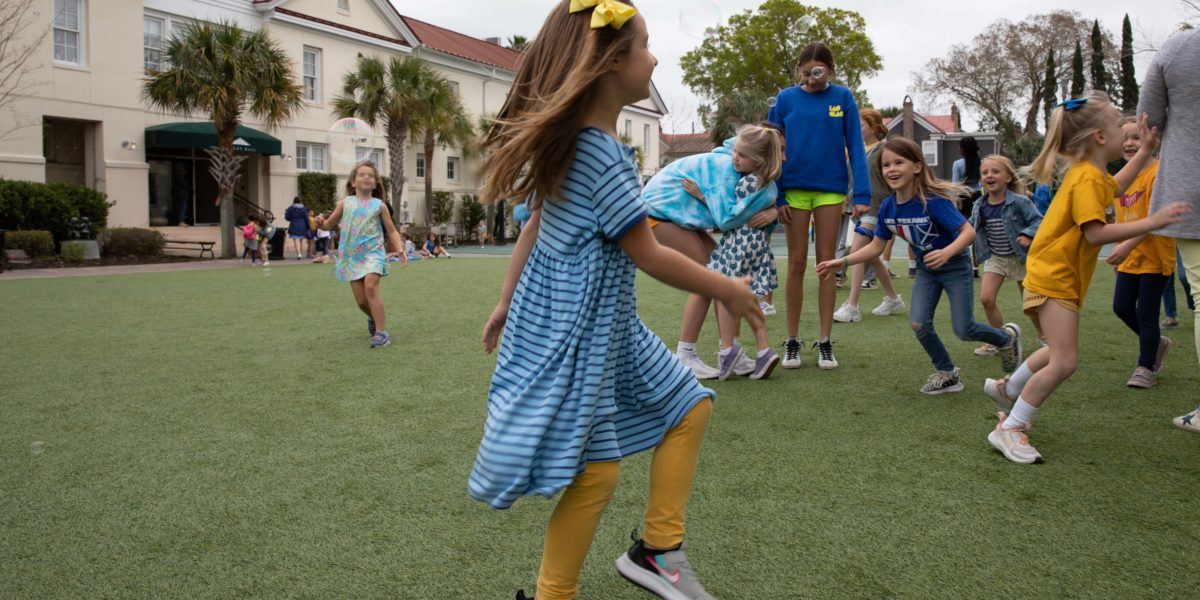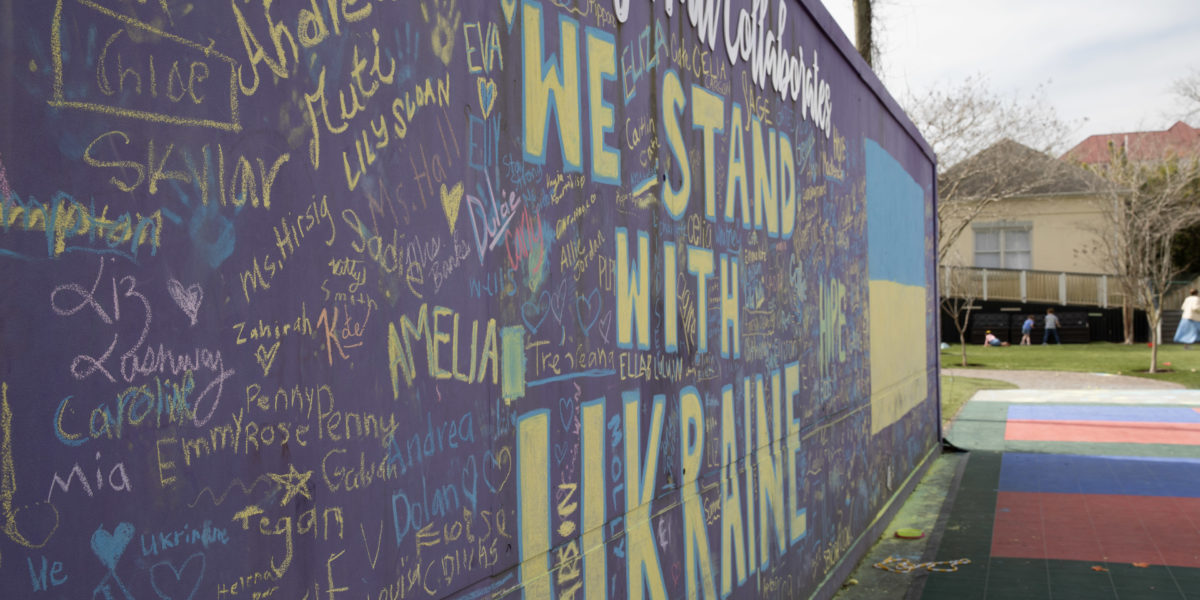
Ashley Hall students swapped their purple and white uniforms today for blue and yellow, the colors of the Ukrainian flag, to raise money for UNICEF as they work to scale up life-saving programs for children and families affected by the war.
Led by Upper School human rights students, the philanthropic initiative was born out of discussions in the classroom around current events in eastern Europe. “It’s gotten so big, we couldn’t not talk about it,” says Dulcie Fava ’22. “We focus on world conflicts in human rights class, and we completely pivoted our learning plan to talk about what is going on right now because it’s so important. Now basically we are just trying to raise awareness, starting with our school.”
The girls invited every student and faculty member to wear yellow and blue on Friday, March 4, and sign their name in chalk under a unified message on the wall in the center of campus: We stand with Ukraine. Lower School students added chalky handprints and asked seniors questions about the colors they were using to fill in a drawing of the Ukrainian flag. “I kind of explained it as we are a team, and we are rooting for the blue and yellow team,” explained Fava. “Because when someone smaller than you needs help, you should stand up for them.”

What’s happening in Ukraine is coming up in the human rights classroom because one of the main lessons students learn is about sovereignty. “Sovereignty is considered the main foundation of international relations,” says Upper School faculty member Andrea Muti. “And the main rule is no sovereign state can attack another sovereign state.” The impact of Russia violating this rule is what is being discussed in class. “What we are seeing is anything is legal, that order doesn’t exist, if we teach our students that taking another country by force is possible.”
The war was something students were having a hard time understanding before discussions started with Muti. “This is history in the making,” says Amelia Agosti ’22. “People are going to read about this in their text books in years. And social media spreads information a lot, but I didn’t really know about what was happening until this class. The flag we drew shows that we stand with them, but also that we know what’s going on and we acknowledge it.”

Muti agrees that students are not only witnessing history, but living during a crucial turning point in history. “There is a before and after in many world events,” he says. “You think of World War I, World War II, and what happened last week with the invasion of the Ukraine is the violation of the main principle of international relations and the UN Charter. And there is no going back.”
